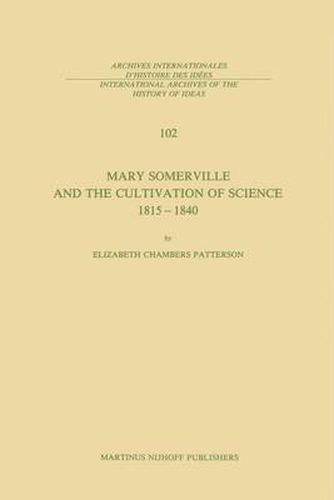Readings Newsletter
Become a Readings Member to make your shopping experience even easier.
Sign in or sign up for free!
You’re not far away from qualifying for FREE standard shipping within Australia
You’ve qualified for FREE standard shipping within Australia
The cart is loading…






This title is printed to order. This book may have been self-published. If so, we cannot guarantee the quality of the content. In the main most books will have gone through the editing process however some may not. We therefore suggest that you be aware of this before ordering this book. If in doubt check either the author or publisher’s details as we are unable to accept any returns unless they are faulty. Please contact us if you have any questions.
Among the myriad of changes that took place in Great Britain in the first half of the nineteenth century, many of particular significance to the historian of science and to the social historian are discernible in that small segment of British society drawn together by a shared interest in natural phenomena and with sufficient leisure or opportunity to investigate and ponder them. This group, which never numbered more than a mere handful in comparison to the whole population, may rightly be characterized as ‘scientific’. They and their successors came to occupy an increasingly important place in the intellectual, educational, and developing economic life of the nation. Well before the arrival of mid-century, natural philosophers and inventors were generally hailed as a source of national pride and of national prestige. Scientific society is a feature of nineteenth-century British life, the best being found in London, in the universities, in Edinburgh and Glasgow, and in a few scattered provincial centres.
$9.00 standard shipping within Australia
FREE standard shipping within Australia for orders over $100.00
Express & International shipping calculated at checkout
This title is printed to order. This book may have been self-published. If so, we cannot guarantee the quality of the content. In the main most books will have gone through the editing process however some may not. We therefore suggest that you be aware of this before ordering this book. If in doubt check either the author or publisher’s details as we are unable to accept any returns unless they are faulty. Please contact us if you have any questions.
Among the myriad of changes that took place in Great Britain in the first half of the nineteenth century, many of particular significance to the historian of science and to the social historian are discernible in that small segment of British society drawn together by a shared interest in natural phenomena and with sufficient leisure or opportunity to investigate and ponder them. This group, which never numbered more than a mere handful in comparison to the whole population, may rightly be characterized as ‘scientific’. They and their successors came to occupy an increasingly important place in the intellectual, educational, and developing economic life of the nation. Well before the arrival of mid-century, natural philosophers and inventors were generally hailed as a source of national pride and of national prestige. Scientific society is a feature of nineteenth-century British life, the best being found in London, in the universities, in Edinburgh and Glasgow, and in a few scattered provincial centres.